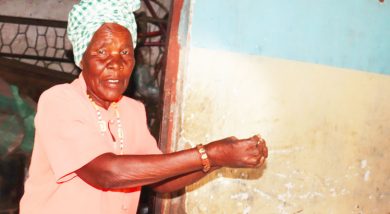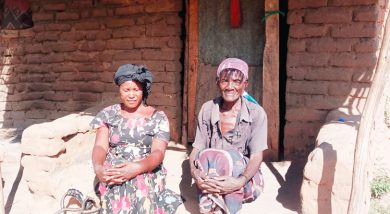Nipping HIV and Aids in the bud
HIV and Aids capitalises on human fear, stigma and discrimination to cause its havoc in communities.
EPHRAIM NYONDO writes on how a project by the Coalition of Women Living with HIV and Aids (Cowla) is destroying that.
Elufe Kalichero says if every Malawian can overcome fear, stigma and discrimination against those living with HIV, the pandemic would, soon, be history.
The 35-year-old mother of two from Mitundu in Lilongwe District means what she is saying. Her husband died on March 10 2013 when she was seven months pregnant. Her daughter never lived to witness her second birthday. She died when she was a year old and two months. Three months after her baby’s demise, Kalichero’s health began to dwindle.
“I had persistent fever. At first I thought its malaria, but when I went to the hospital doctors could not diagnose any,” she says.
Secretly, she sneaked to Mitundu Community Health Centre where she was diagnosed with HIV. As weeks shrunk into months, so did her body. She started to lose weight and she could hardly manage a kilometre to fetch firewood and feed her two children.
Reviled by her husband’s family and rejected by her own family, Kalichero took her two children to a shack where she settled waiting to die.
“I felt I am dead not because of my status, but mostly because of the stigma and discrimination and rejection I suffered from people I used to eat with everyday,” she says.
One afternoon while resting under a tree near her shack, Kalichero heard a call up for a meeting convened by their village head. She says she was forced to attend after hearing that the meeting will discuss a new project in the Mitundu on issues of HIV and Aids.
That meeting was convened by Cowla, a non-governmental organisation (NGO) that fights for women living with HIV.
“We had received a grant from Stop Aids Now through CHAI to implement a project that will contribute to increased uptake of women and young women of reproductive age of quality HIV and Reproductive and Maternal Neonatal Health (RMNH) services through improved clinical governance and community driven accountability,” says Annie Banda, Cowla’s executive director.
However, Banda notes that most of RMNH interventions tend to fail to address stigma and rights violations in the health care sector, despite wide recognition that addressing these issues improves HIV responses.
In other words, HIV and RMNH interventions fail to address issues of fear, stigma and discrimination which continue to keep women like Kalichero.
As such, notes Banda, their project-a three year one ending next year-will contribute to HIV responses in generalised epidemics by improving our know-how for addressing stigma and rights violations in the context of HIV and RMNH integration and health systems strengthening.
“The idea is to develop an innovative way of reducing stigma and rights violations in HIV and RMNH settings and thus improve the quality of HIV and RMNH services, and improved services translate into improved uptake of services,” she says.
After attending the meeting, Kalichero says she breathed a sigh of relief.
“I had a chance to meet counselllors from Cowla who guided me to go to the Mitundu Clinic and enrol for ART,” she says.
Mitundu Community Hospital is one of the three community hospitals in Malawi. The hospital was built to serve a population of about 250 000 people initially.
However, with the growing population, it is now serving about 600 000 people. In spite of the growing population, the number of women seeking maternal and neo-natal health services and HIV services like ART clinic has been ebbing in the past years due to practices like home deliveries and HIV stigma and discrimination which hinder some people from seeking HIV services, says Emmanuel Nyerewa, the hospital in charge.
However, due to Cowla’s increased awareness and sensitising communities about their health rights and advocating for quality medical care, Nyerewa says the hospital which used to have about 12 deliveries per day is now experiencing about 20 to 25 deliveries per day.
Hospital deliveries, unlike home ones, have increased the number of women getting tested for HIV and Aids and also helped to avoid mother-to-child transmissions, adds Nyerewa.
After being trained on how to curb mother-to-child transmissions and also the importance of adhering to ART, Kalichero, today, says that had she known before she could not have lost her child.
It took me four years to have a child, she begins, adding: “after the death of my husband I did not have information regarding the importance of delivering at the hospital. I have always delivered at home, as such; I missed the opportunity of being tested for HIV so that my child could be born without the virus.”
Today, Kalichero-whose weight, in a year since he enrolled for ART, has shot up to 65 kgs from 45-is part of 60 women living with the virus in Mitundu who have formed support groups that are reaching out to those who share their story.
“What we do now, because we are strategically placed, we play the role of expert clients. We have been trained in psychosocial support and we go into the communities following up whoever is on ART to ensure they do not default. It is working,” she says. n





